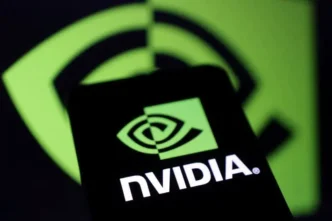Executive Summary
The Story So Far
Why This Matters
Who Thinks What?
Nvidia CEO Jensen Huang stated on Wednesday that Washington and Beijing “have larger agendas to work out,” as the company navigates the complex political landscape of the U.S.-China trade dispute. His remarks in London followed a Financial Times report indicating that China’s internet regulator ordered major tech firms to halt purchases and cancel existing orders for Nvidia’s AI chips, a move that places the dominant AI chip maker in a precarious position between the world’s two largest economies.
Geopolitical Tensions and Market Impact
The reported directive from China’s Cyberspace Administration of China (CAC) instructs companies, including ByteDance and Alibaba, to cease testing and orders for the RTX Pro 6000D chip. This development comes despite an earlier Reuters report suggesting that Chinese tech firms desired more of Nvidia’s crucial AI chips, even amid discouragement from Beijing’s regulators.
Nvidia, a key player in the AI chip sector, has found itself at the nexus of U.S.-China trade tensions, drawing significant attention from both the White House and the administration of Chinese President Xi Jinping. The company’s shares were down 2.6% on Wednesday, reflecting investor concerns over the evolving geopolitical challenges.
Navigating Regulatory Hurdles
The latest Chinese regulatory action appears to be more stringent than previous guidance, which primarily focused on the H20, an earlier version of Nvidia’s China-tailored AI chip. President Trump had previously brokered an unusual deal in mid-August, granting Nvidia licenses to sell H20 chips to China in exchange for a 15% cut of those sales, despite national security concerns.
However, Nvidia has yet to ship any H20 chips to China, as the U.S. has not finalized rules for payment collection. The company’s newer RTX6000D chip, designed for the Chinese market, has also reportedly seen lukewarm demand, with some major tech firms opting against orders due to perceived cost-effectiveness issues.
Nvidia’s Stance and Future Outlook
Jensen Huang expressed disappointment over the situation but conveyed patience, stating, “We can only be in service of a market if a country wants us to be.” He affirmed Nvidia’s commitment to supporting the Chinese government and companies as desired.
The ongoing restrictions could significantly impact Nvidia’s business in China, which accounted for 13% of its total sales last year. Michael Ashley Schulman, chief investment officer at Running Point Capital Advisors, characterized the situation as Nvidia being “pawns in a digital Cold War,” highlighting the pressure on multinational corporations to balance national security doctrines with techno-sovereignty demands.








